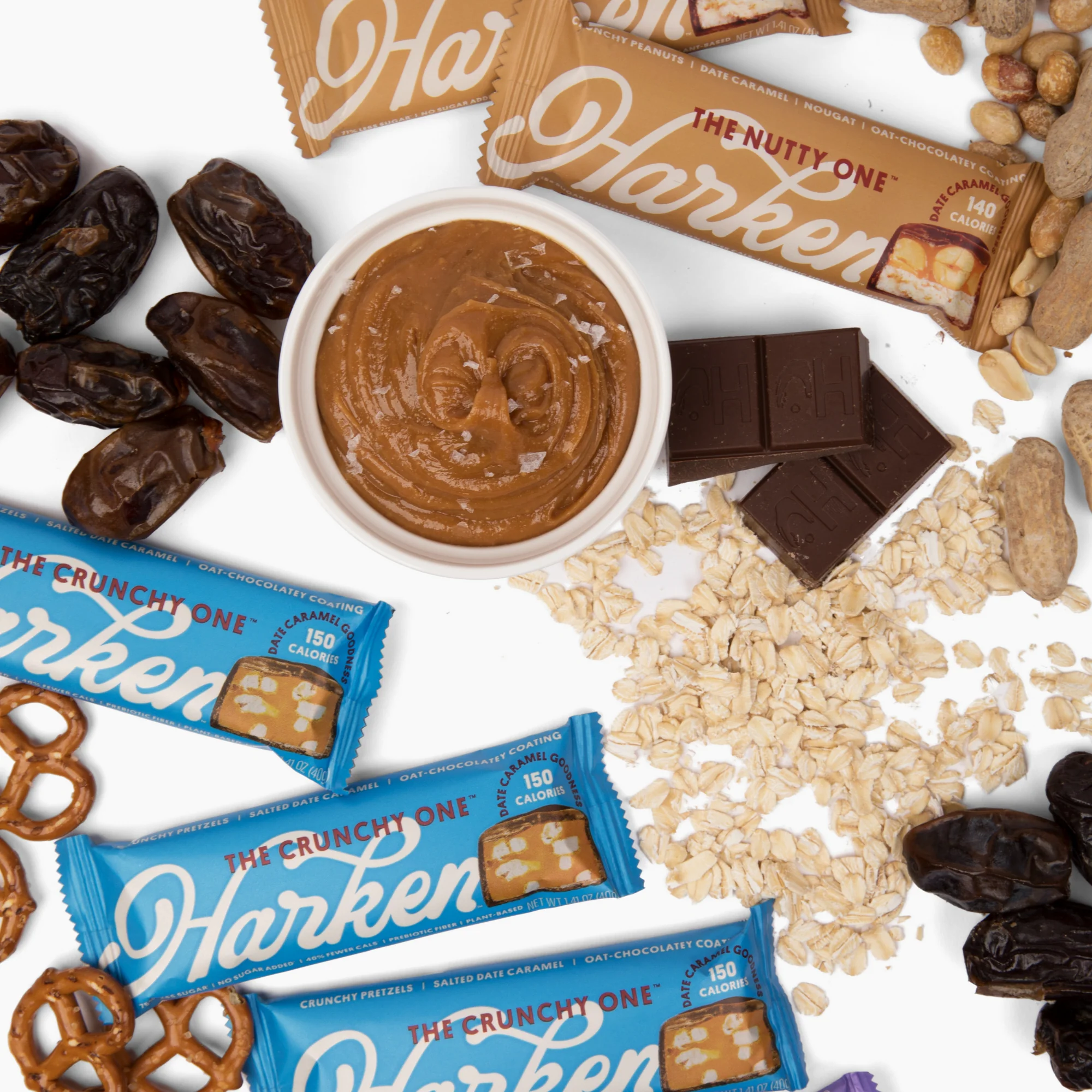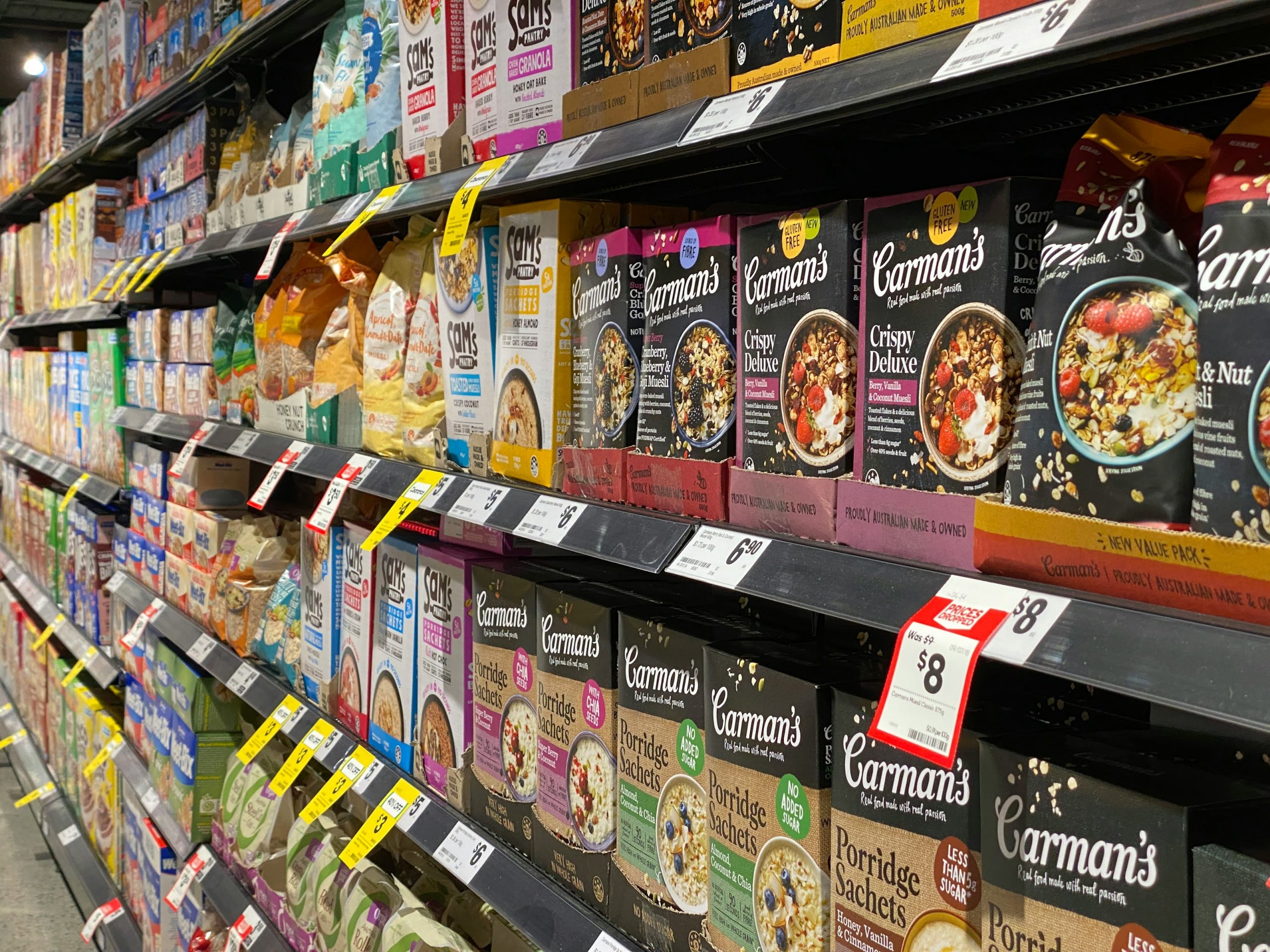Sometimes, necessity is the mother of invention. Just ask Katie Lefkowitz, the CEO of Harken Sweets.
A past health scare related to colon cancer prompted Lefkowitz to reprioritize her gut health. As a result, the idea of high-fiber, plant-based candy bars was born.
“I realized there was a significant gap in the market,” the CEO said. “However, there were no comparable options already on the market – so I decided to make my own.”
That’s how 140-calorie, date caramel candy bars came to be. Harken’s superfood-infused candy bars recently expanded to 1,000 additional doors across retailers like Albertsons, Hy-Vee, The Fresh Market and more, bringing the brand’s total door count to nearly 5,000 throughout the U.S.
Harken Sweets, which launched less than a year ago, has enjoyed 50% growth, quarter over quarter, since its inception.
“The recent gut-health boom across social media, and sugar reduction, aren’t fads,” Lefkowitz told The Food Institute. “However, indulgence when it comes to sweets is going to be a top priority for consumers, which means they’ll be looking for functional ingredients that also taste great.”
Harken Sweets’ success didn’t exactly happen overnight. To create plant-based, fiber rich candy, Lefkowitz deftly decided to prioritize the following factors.
Transparent, Nutrient-Dense Ingredients
“By macerating our dates, we were able to create the first-ever date caramel without using milk or butter,” the CEO explained. This approach has resulted in a candy bar that’s non-GMO project verified, vegan, and high in antioxidants and minerals.
Harken’s consumer studies indicate that 56% of consumers consider ingredients to be “very important” in a candy bar. Thus, the brand clearly states its healthier-for-you elements on packaging. “Our bars avoid artificial additives, preservatives, etcetera, and that builds trust,” Lefkowitz said.

A More Functional Future
Gaining shelf space alongside CPG giants can be challenging. However, Harken’s leaders are confident that their better-for-you products will appeal to Millennials, Gen Z, and generations to come. Harken’s research revealed that 65% of Americans want more functionality out of their food and are incorporating superfoods into their diet.
“We specifically chose to launch in grocery stores that would help our goal to democratize healthy food options,” Lefkowitz said. “This allows us to meet the demand of the masses while also making a premium product accessible to a much wider set of shoppers.”
Functionality in foods – especially confectionery – will continue to be a huge priority for consumers, Lefkowitz predicts.
“Our focus on plant-based ingredients and no sugar added resonates with our health-conscious customers who are looking to indulge in sweet treats without compromising their dietary goals,” the CEO noted.
The better-for-you candy bar brand had to scale a few hurdles in its early days. But it appears to be off and running now, thanks in part to the support of retailers like Walmart.
“It can be a challenge to both replicate the sensory experience of a traditional, nostalgic candy bar and still be zero-sugar-added and vegan/plant-based,” Lefkowitz said. “However, by homing in on the right ingredients and positioning the product in front of the right demographic who will resonate with (our) goals and messaging, we are well on our way.”
The Food Institute Podcast
Restaurant results for the second quarter weren’t stellar, but people still need to eat. Are they turning to their refrigerators, or are restaurants still on the menu for consumers? Circana Senior Vice President David Portalatin joined The Food Institute Podcast to discuss the makeup of the current restaurant customer amid a rising trend of home-centricity.












